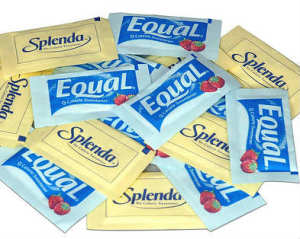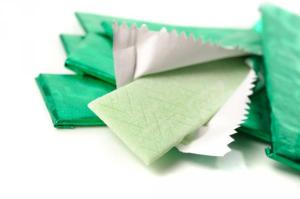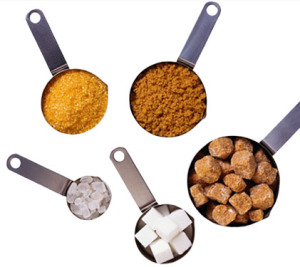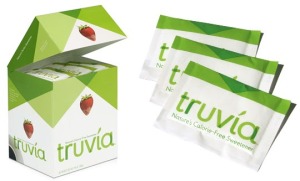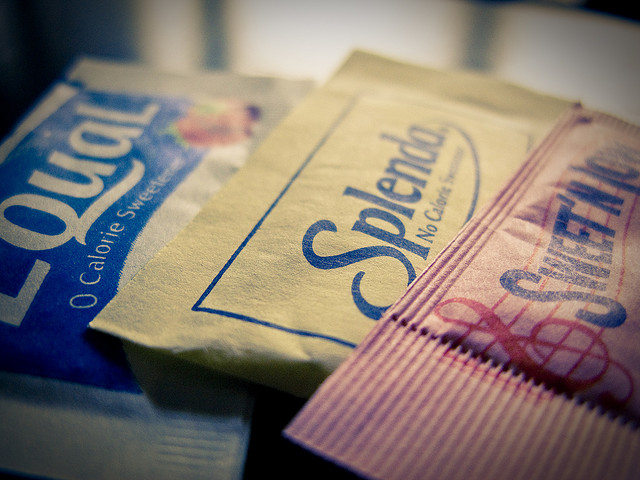
The Usual Suspects: Sugar Substitutes
March 24, 2013 // Nutrition, Wellness
Everyone knows that sugar is detrimental to our health. People are becoming more aware of the sugar content in their foods and drinks. Major companies are changing the ingredients of their products and introducing sugar substitutes to meet the demand for the sugar-free lifestyle. These sugar substitutes have varying effects on the body and, depending on the type, can be just as harmful to your health. Let’s differentiate the sugar substitutes found in many of the common foods and drinks and outline which types are best for improving health.
Sugar Substitutes
Artificial Sweeteners
These sweeteners are often used to improve sweetness of liquids such as coffee, tea, and sport drinks. Artificial sweeteners are significantly sweeter than standard sugar, so their selling point is that less quantity is needed to bring about the same sweetness as sugar. Furthermore, these sweeteners are generally zero calories. The problem with artificial sweeteners is their reaction within the body after intake. These sweeteners yield a high amount of insulin to be released when absorbed. As we know, a sudden spike of insulin causes weight gain, fat storage, organ dysfunction, and drastic energy changes. In addition, most artificial sweeteners are made from harmful chemicals (some are even found on the FDA’s hazardous list).
- Acesulfame Potassium (Sunett, Sweet One)
- Aspartame (Equal, NutraSweet)
- Neotame
- Saccharin (SugarTwin, Sweet’N Low)
- Sucralose (Splenda)
Verdict: Avoid
Sugar Alcohols
Sugar alcohols are color-less and odor-less, but pack plenty of sweetness. They are made from plant sources, contain less calories than sugar,and are found in many processed foods. They are becoming more popular since they are lower in calories than sugar, which attracts calorie-counting fanatics. These sugar alcohols can harmful to your health as they are known to cause bloating and diarrhea, and have been linked to an increase in diabetes.
- Erythritol
- Hydrogenated Starch Hydrolysate
- Isomalt
- Lactation
- Maltitol
- Mannitol
- Sorbitol
- Xylitol
Verdict: Avoid
Natural Sweeteners
Natural sweeteners, also known as added sugar, are derived from natural, whole sources. Used in almost every type of food product, natural sweeteners absorb slowly into the bloodstream. The drawback is they contain high amounts of fructose. Fructose is the key element linked between intake and weight gain, especially found in the infamous High Fructose Corn Syrup. Many natural sweeteners, however, have beneficial properties such as fiber, minerals, and pre-biotics. Since they retain some of their health benefits, natural sweeteners are the healthier substitute(s) for sugar.
- Agave Nectar
- Date Sugar
- Fruit Juice Concentrate
- Honey
- Maple Syrup
- Molasses
Verdict: Use
Novel Sweeteners
Novel sweeteners are a combination of various sugar substitutes and cannot be defined as a single type. These sweeteners come from the stevia brush plant which is native to Central and South America. Stevia can be found on shelves in the products PureVia or Truvia. Stevia does not contain calories or carbohydrates, which makes it an attractive sugar substitute. Another great benefit of Stevia is that it has a low impact on insulin when absorbed. Stevia is considered to be just as healthy as a natural sweetener, but it is sometimes combined with a sugar alcohol such as erythritol in certain products. This is why Stevia is listed as a novel sweetener, but is still one of the superior sugar substitutes.
- Stevia Extracts (Pure Via, Truvia)
- Tagatose (Naturlose)
- Trehalose
Verdict: Use
———————————————————————————
The Take-Away
Sugar and its substitutes are not healthy for the body. Besides the immediate negative hormonal impact on the body, sugar substitutes can cause harmful long-term effects on a persons’ health such as diabetes, fat storage, weight gain, hypertension, headaches and more. Whenever possible, eat natural whole foods. Whole foods, such as natural fruits, are made up of sugar. The difference is fruit contains fiber in the skin, so the effect of sugar is regulated with the presence of fiber. Consider avoiding sugar and its substitutes whenever possible.
However, there are times when a sugar substitute may be necessary. When sweetness is required, choose natural sweeteners as well as Stevia products over the competition. Forgo your calorie counting and focus on the impact of the sweeteners to your body. Consider consuming a glass of water for every processed drink consumed. Water is always the superior choice for hydration and body regulation. Making smarter choices about the ingredients you ingest will drastically improve your health and wellness.
The Point: Stick with Natural Sweeteners & Stevia
———————————————————————————
